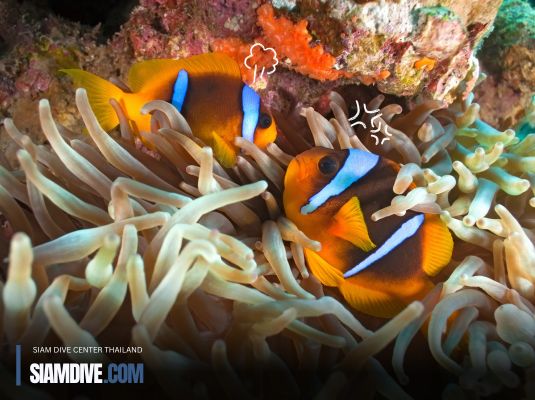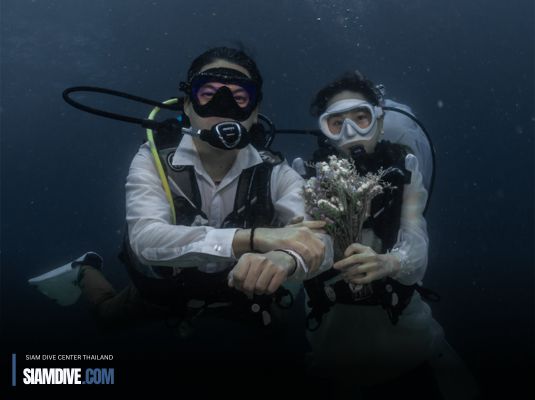Unveiling the King of the Sea!
Did you know? Every third Sunday of February each year is celebrated as World Whale Conservation Day,…
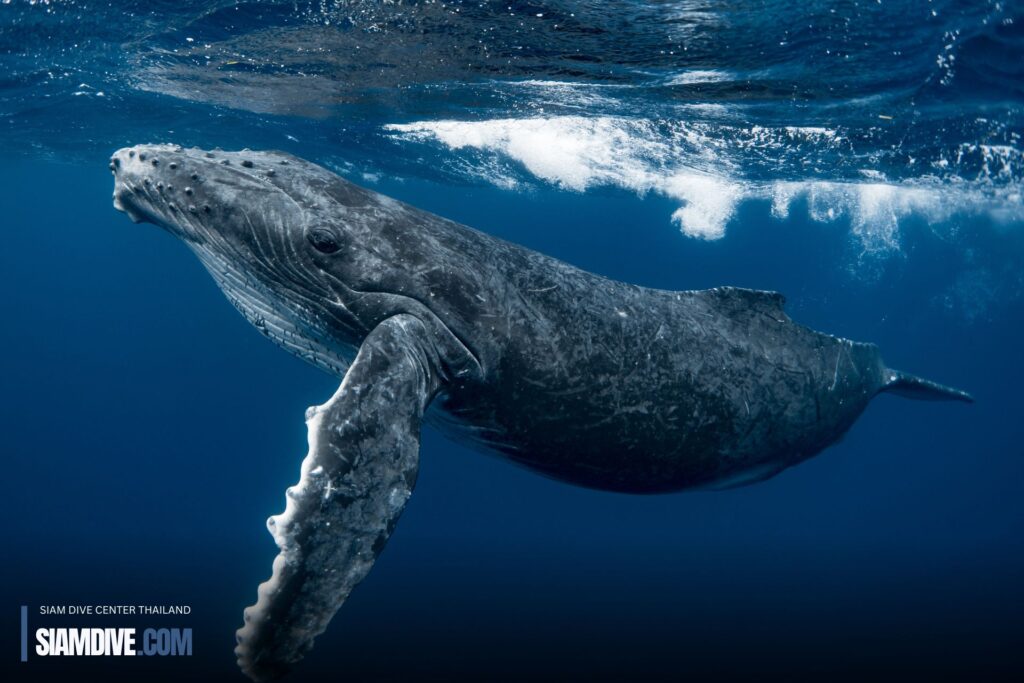
Did you know? Every third Sunday of February each year is celebrated as World Whale Conservation Day, honoring the King of the Sea, who has ruled the oceans from ancient times to the present. Whales are not only massive in size but also play a crucial role in marine ecosystems and offer significant benefits to humans as well.
“Whale” is the largest mammal on Earth, living in the ocean. Whales typically travel in groups and give birth to one calf at a time. They breathe through a blowhole on top of their heads, known as a “spermaceti”. Whales have small eyes, not used for vision, but primarily communicate with sound within their pod. Some species, like the killer whale, have teeth to catch prey, while others, like the blue whale, have baleen plates in their mouths to filter food.
What do Whale or King of the Sea eat?
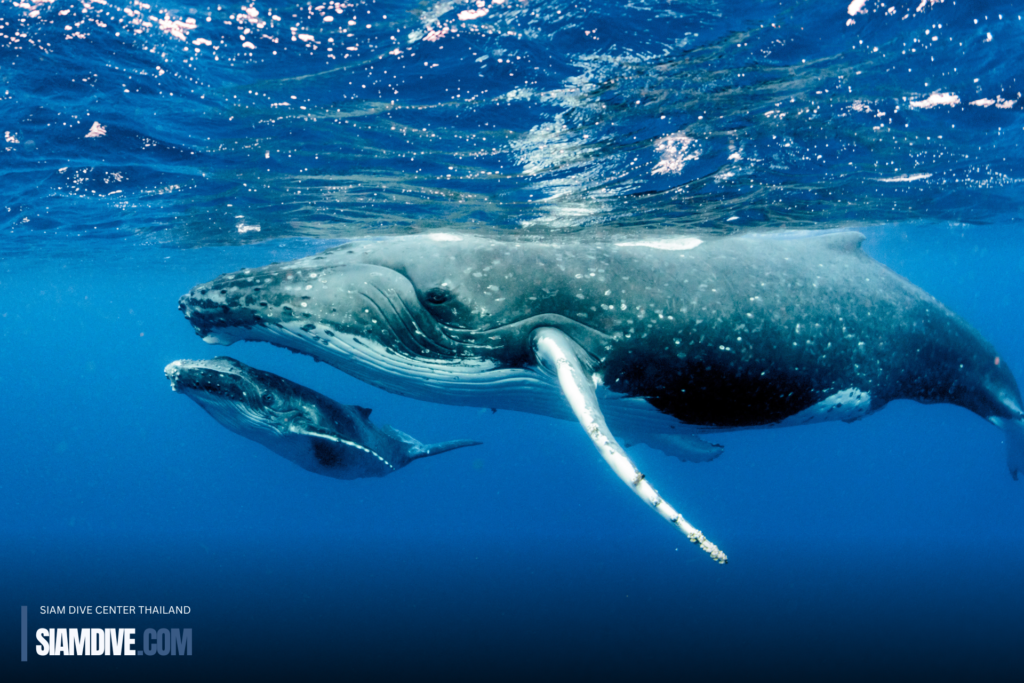
Whales that don’t have teeth, such as the blue whale, humpback whale, and Sperm whale, use baleen plates in their mouths to filter food. They filter out small organisms like plankton, krill, and small fish by opening their mouths to take in seawater. The baleen plates act as a sieve, trapping food and allowing the whale to expel the water.
Toothed whales, such as the Orca whale and beluga whale, feed on larger animals like fish, squid, and smaller marine mammals. They use their teeth to catch and bite their prey. These whales often hunt in pods, working together to capture prey and remain in groups for cooperative hunting.
The habitat of Whale
Whales can be found throughout the world oceans. They typically inhabit areas rich in resources, and they can travel thousands of kilometers each year. Some species migrate from colder regions to warmer areas, such as the blue whale and humpback whale, which move to tropical seas during breeding seasons.
Endangered whales
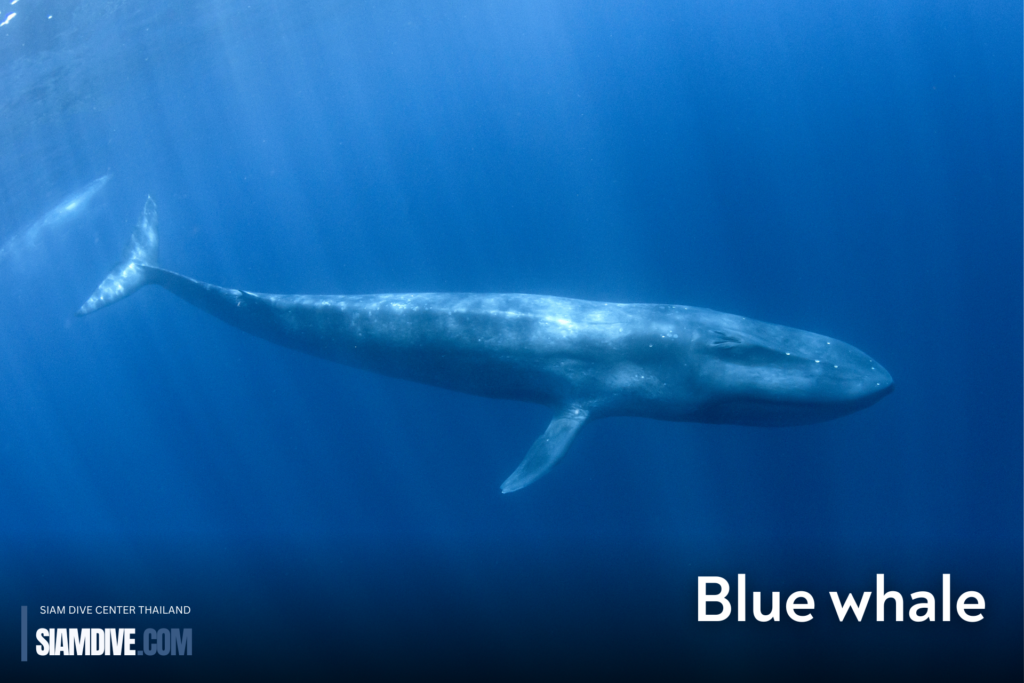
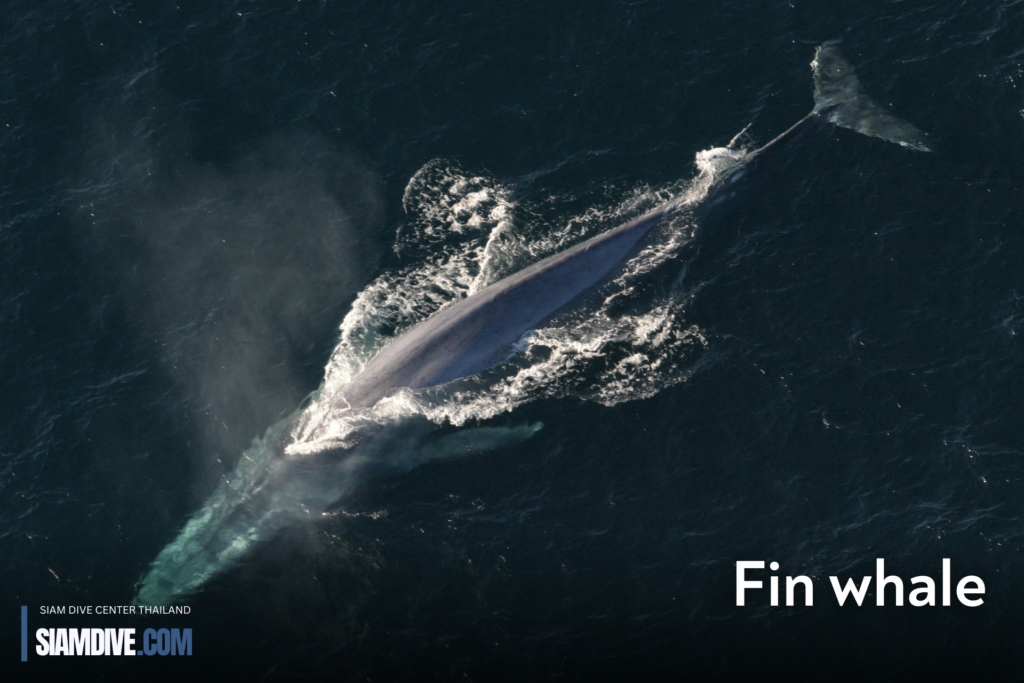
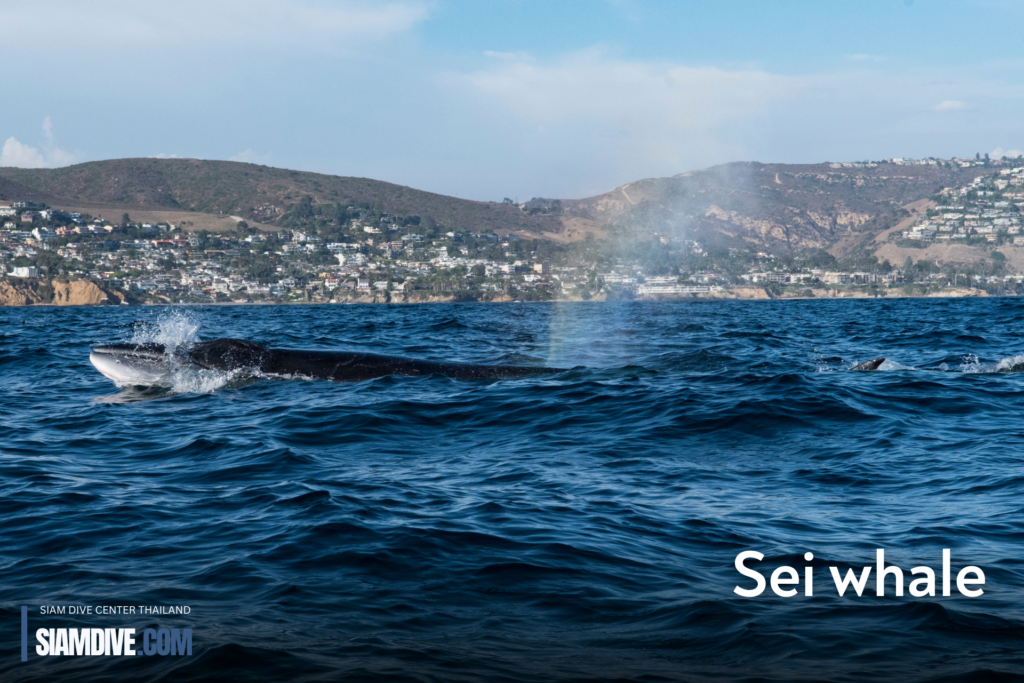
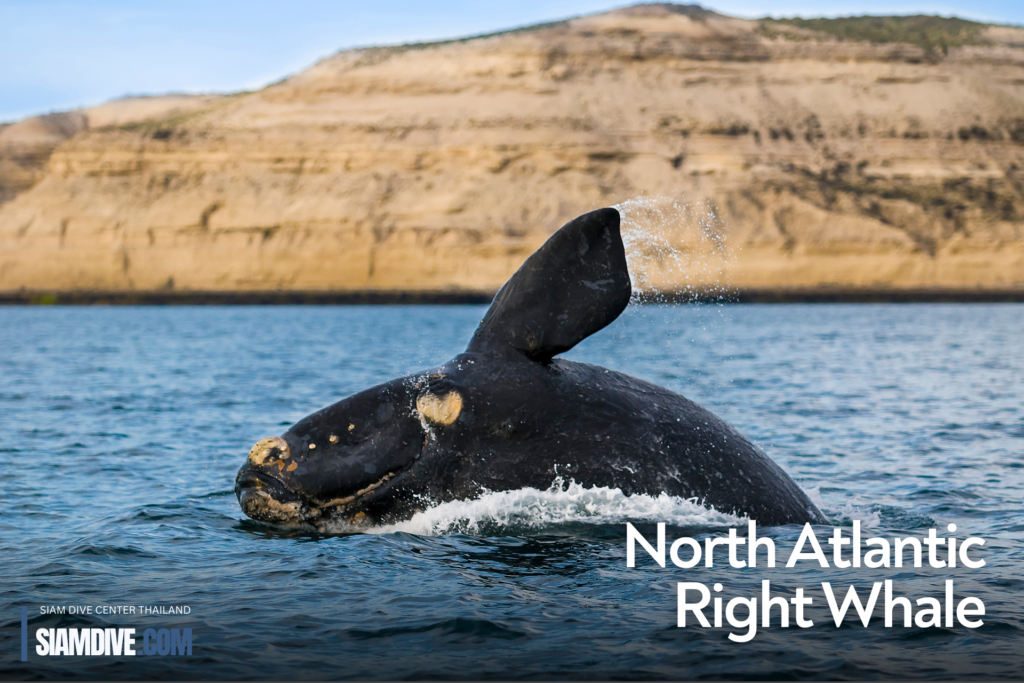
These four whale species are at high risk of extinction due to human activities, such as commercial whaling, entanglement in fishing gear like trawl nets, and the pollution of oceans with plastic waste. Additionally, whales are at risk of colliding with ships, which can cause injury or death. Climate change is also affecting marine ecosystems, with issues like increased ocean acidification and loss of food sources, such as plankton and fish, in certain areas, leading to food shortages for whales.
What should you do if you encounter a whale?
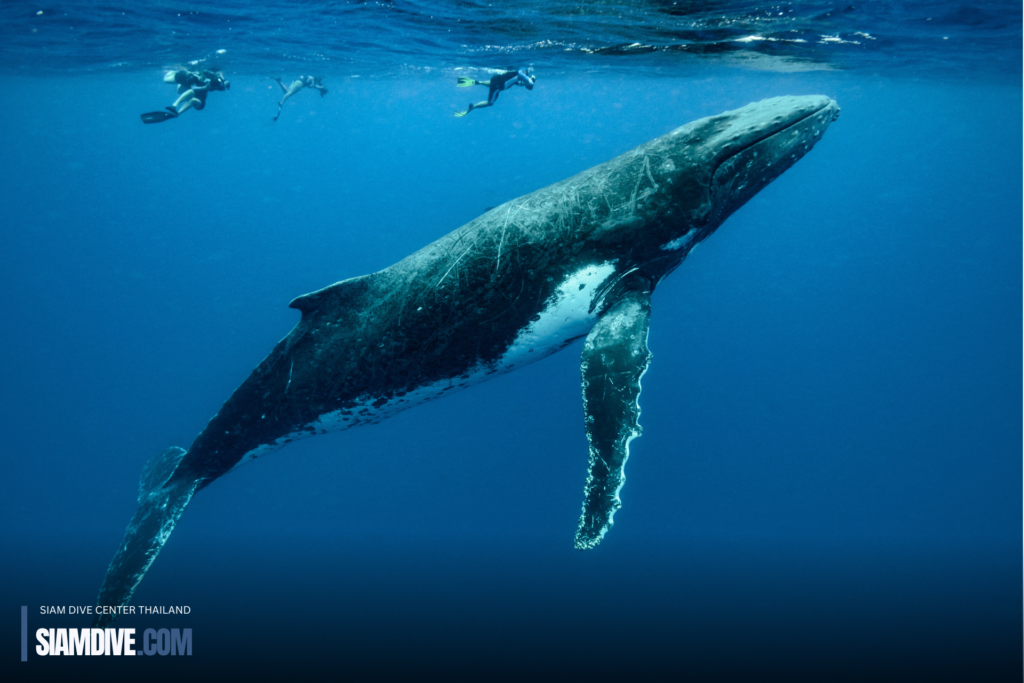
- Visitors should approach whales in groups of no more than 3 boats. When encountering a whale with a calf, maintain a distance of at least 300 meters. For larger whales, keep a distance of at least 100 meters.
Approach whales from behind. Do not drive your boat in front of or chase the whale.- Do not swim with whales, as they may get injured or contract infections from foreign objects.
- Keep noise levels low. Reduce sounds from activities on the boat to avoid disturbing or stressing the whale.
- Do not feed whales, as they may contract infections from foreign substances.
- Reduce boat speed to no more than 4 knots.
King of the sea some of whom are now on the brink of extinction due to human actions. If we want whales to thrive for generations to come, we can start by taking responsibility for our own actions, such as not discarding plastic waste into the ocean. Let’s work together to protect and preserve these magnificent creatures!
If you’re interested in receiving updates or learning to dive, contact : Siamdive :
•Website : https://www.siamdive.com
•Facebook: https://www.facebook.com/Siamdive.
•Instagram: https://www.instagram.com/siamdive_.
•TikTok: https://www.tiktok.com/@siamdive.
•YouTube: https://youtube.com/@siamdivecenter


